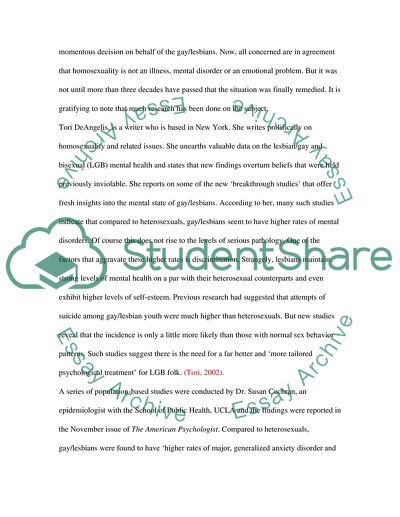Cite this document
(“Gay, Lesbians, and Mental Illness Research Paper”, n.d.)
Gay, Lesbians, and Mental Illness Research Paper. Retrieved from https://studentshare.org/health-sciences-medicine/1707943-gaylesbain-and-mental-illness
Gay, Lesbians, and Mental Illness Research Paper. Retrieved from https://studentshare.org/health-sciences-medicine/1707943-gaylesbain-and-mental-illness
(Gay, Lesbians, and Mental Illness Research Paper)
Gay, Lesbians, and Mental Illness Research Paper. https://studentshare.org/health-sciences-medicine/1707943-gaylesbain-and-mental-illness.
Gay, Lesbians, and Mental Illness Research Paper. https://studentshare.org/health-sciences-medicine/1707943-gaylesbain-and-mental-illness.
“Gay, Lesbians, and Mental Illness Research Paper”, n.d. https://studentshare.org/health-sciences-medicine/1707943-gaylesbain-and-mental-illness.


